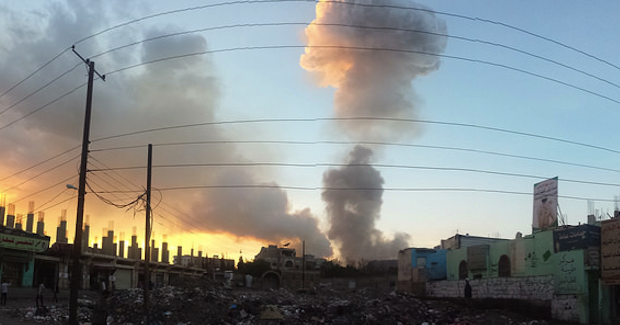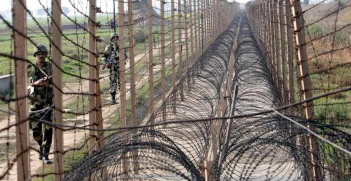Yemen's Agony: Is the World Starting to Respond?

The ferocious war in Yemen was brought into sharp focus this week after a Saudi airstrike killed 140 people attending a funeral.
Saudi Arabia’s attacks on Yemen have been largely ignored by the outside world since they began in March last year. The conflict has been overshadowed by the larger struggles in Iraq and Syria and it has suited Western politicians, who have been abetting the Saudis in their attacks, for the war to be overlooked in the media.
In relative terms, however, the human cost of the Saudi assault is worse than what is occurring in Syria. According to the United Nations, over half of Yemen’s population of 28 million people are short of food with hundreds of thousands at risk of starvation. Children are particularly seriously affected, with 370,000 suffering severe malnutrition and 1.5 million going hungry. Half the Yemeni children under five are stunted because of chronic malnutrition. Food shortages have been a long-term problem since the Saudis imposed a blockade on the country, preventing food and essential health supplies from reaching the needy.
Despite their vastly superior military strength, including control of the skies, the Saudis have been unable to defeat the coalition of Houthi fighters from the mountainous north of the country and forces loyal to the former president, Ali Abdallah Saleh. Instead, a stalemate has developed, which has facilitated the expansion of Al-Qaeda in the Arabian Peninsula (AQAP) and a secessionist movement based in Aden.
The Saudis have maintained an intensive aerial campaign against their opponents in which civilians have frequently been attacked. Hospitals, schools and marketplaces have been prominent targets. Human rights monitors such as Human Rights Watch have accused both sides, but especially the Saudis, of violations including using banned weapons such as cluster munitions, which could constitute war crimes.
The Saudi government has been aided by Western countries, especially the United States and the United Kingdom, which have provided weapons, training and targeting support. Both countries have secured lucrative arms deals with Riyadh and the Obama administration needs Saudi acquiescence in the nuclear deal with Iran that was reached last year.
In response to early Houthi military successes, the Saudis resorted to a campaign marked by brutality in an attempt to inflict total defeat on their opponents. Saudi intransigence in insisting on a Houthi surrender led to the collapse of UN-mediated peace talks in Kuwait in August.
The unrestrained ferocity of the Saudi bombing campaign culminated in the bombing of a funeral in the capital, Sana’a, over the weekend, killing more than 140 people and injuring many more. The fact that Houthi leaders were among the mourners and the magnitude of the bombing reinforce suspicions that the attack was deliberate and, therefore, constitutes another instance of war crimes by the Saudis and their allies. This was the second mass killing of civilians by the Saudis since the fighting began and led to UN Secretary-General Ban Ki-moon and UN High Commissioner for Human Rights Zeid Ra’ad Al-Hussein calling for an independent investigation into Saudi tactics.
In what appears to be a response to the bombing, an attack was reportedly launched from Houthi-held territory against a US Navy destroyer patrolling in the Red Sea. The attack represents a worrying potential escalation of the conflict by drawing the US into direct involvement.
The Saudis’ lack of concern for human rights has begun to provoke concern in the US and UK. British parliamentarians expressed concern about their governments’ support for the Saudis and members of the US Congress have been attempting to block the sale of US weapons to the Saudis. A recent New York Times editorial argues that it is “clear that the US must end its complicity in a civil war that has caused a humanitarian catastrophe in one of the world’s poorest countries and fuelled extremism.”
The US administration responded to the growing concern following the bombing by announcing that “[we have] initiated an immediate review of our already significantly reduced support to the Saudi-led coalition and are prepared to adjust our support so as to better align with US principles, values and interests, including achieving an immediate and durable end to Yemen’s tragic conflict.”
It remains to be seen how serious the US review is. Since the fighting began, the US and UK have been intent on preventing international scrutiny of the carnage. Last year, the Netherlands submitted to the UN Human Rights Council a draft resolution that would have, among other things, established an independent enquiry into the fighting and into reported human rights violations. Under US and UK pressure, however, the Dutch withdrew their draft, which was cynically replaced by a Saudi draft that gave the Saudis the responsibility for investigating their own abuses. Not surprisingly, the Saudis’ reporting has found no fault on their side but has criticised the Houthis extensively.
At the end of September, the US and its Saudi allies again forced the abandonment of a resubmitted Netherlands draft resolution at the UN Human Rights Council calling for an independent review of Saudi behaviour. Instead, the UN will “assist” the discredited Saudi review by complementing “the investigatory work of the national commission while collecting and preserving information to establish the facts and circumstances of alleged violations and abuses and to document human rights abuses.” It would seem that the US remains determined to prevent real scrutiny of Saudi behaviour.
The international community must take action to stop the Saudi aggression against Yemen. The evidence available suggests a strong prima facie case that significant war crimes and human rights abuses have been committed by all the parties involved but especially by the Saudis. Decisive action is, however, being frustrated by Washington’s determination to protect the Saudis from criticism.
Unlike the imbroglio in Syria, solution to the conflict is attainable. A meaningful change in US policy on Yemen that made clear to the Saudis that their violations of international law are not acceptable would have a dramatic impact on the Saudis’ willingness and ability to continue this dreadful war.
Dr Anthony Billingsley is a lecturer of International Relations at the School of Social Sciences, Faculty of Arts and Social Sciences, UNSW. Anthony’s main research focus is the Middle East and international law.
This article is published under a Creative Commons Licence and may be republished with attribution.




